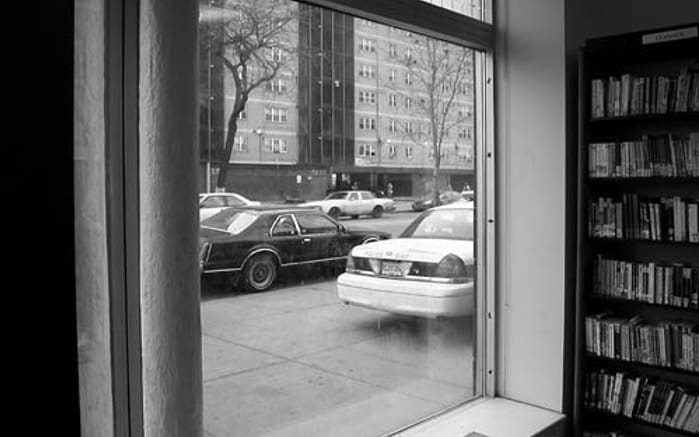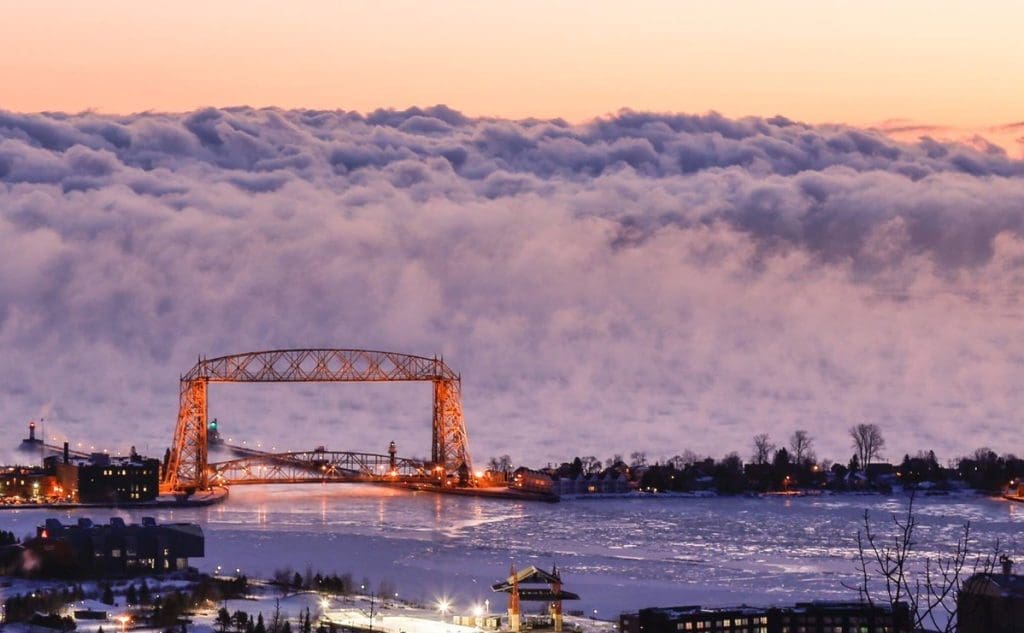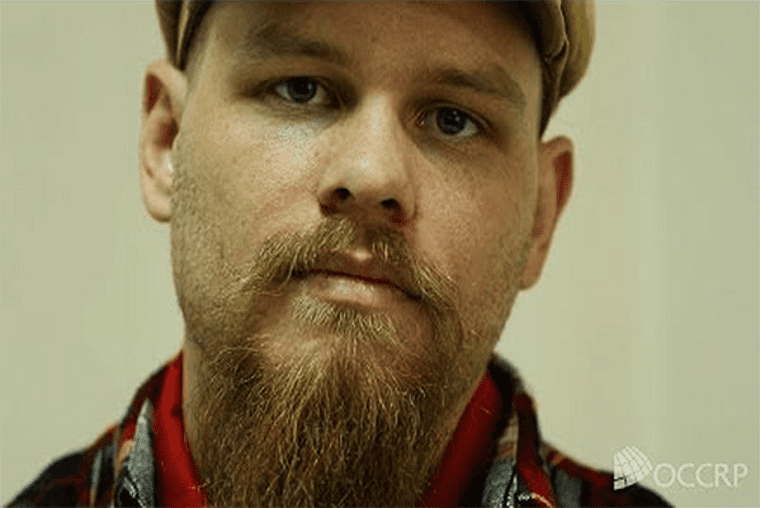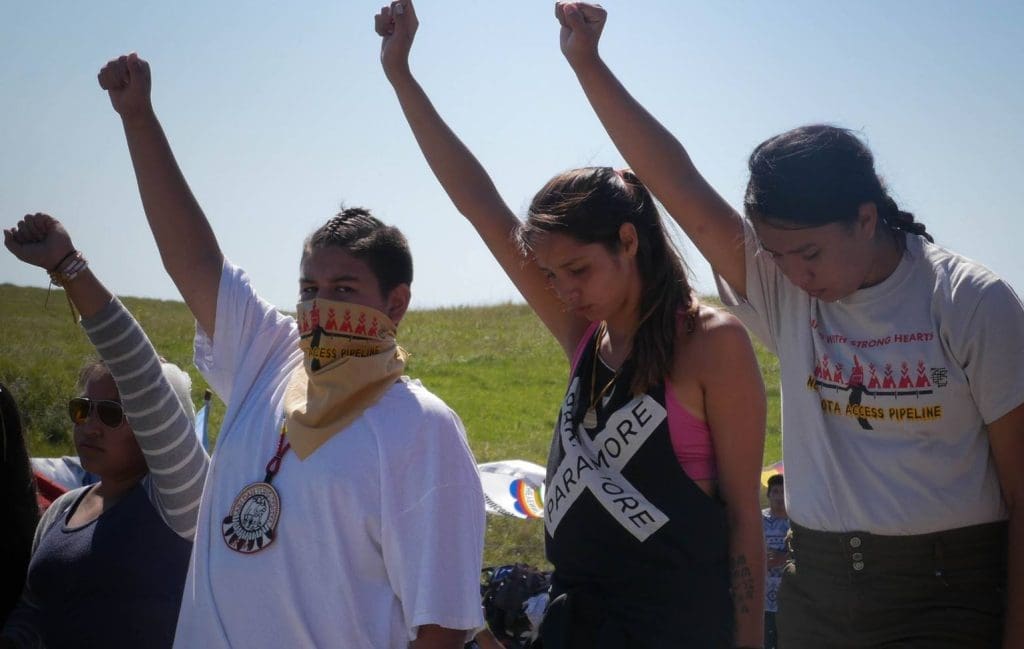Transcribed from the 4 August 2018 episode of This is Hell! Radio (Chicago) and printed with permission. Edited for space and readability. Listen to the whole interview:
There are other instances of cops being allowed to run free to do the kinds of things that Burge and Guevara have been shown to have done. So although there have been important victories in the Burge cases, like with Jackie Wilson, that doesn’t mean there aren’t a lot more cases to fight.
Chuck Mertz: It’s time for an update on what the hell is happening with police violence and find out how the Chicago fraternal order of police can actually be moving farther to the right. Here to give us the skinny on all police violence, attorney Flint Taylor is a founding partner of the People’s Law Office in Chicago, and has been counsel in numerous important civil rights cases over the past forty-eight years, including the Fred Hampton assassination case, the John Burge torture cases, and the Greensboro [North Carolina] civil case.
Welcome back to This is Hell!, Flint.
Flint Taylor: Thank you, Chuck, great to be back.
CM: You’ll be speaking later today at a solidarity event co-organized by the Incarcerated Workers Organizing Committee. What is the intended message of the national prison strike that will be taking place between August 21 and September 9?
FT: I’m not quite sure of all the details, but I do know that when you hear about a national prison strike, it’s something that you want to support, because of the long history of the important leadership and struggles that have happened within prisons, starting with Attica and going through all the prisons here in Illinois, both federal and state, and right down to all of the struggles that are going on in California and across the country with regard to solitary confinement and maximum security prisons, just like Tamms [Correctional Center] that was shut down based on a lot of community action here in Illinois. So when I heard that they wanted me to speak, I said certainly.
CM: As the Chicago Tribune reported, “Jackie Wilson, one of two brothers convicted of one of Chicago’s most infamous cop-killings, walked out of Cook County Jail a free man for the first time in more than thirty-six years. The sudden freedom for Wilson, fifty-seven years old, came after Cook County circuit court judge William Hooks ordered his release a few hours earlier. The judge had tossed out his murder conviction the week before, after finding that notorious ex-Chicago police commander John Burge and detectives under his command had physically coerced his confession.”
Do you know the number of people who were convicted of crimes due to the actions of John Burge, who have now been exonerated and released from jail? And how many more do you expect to be released?
FT: Every one is a major struggle. I was involved in the Wilson case as one of the lawyers, and we fought that tooth and nail, most recently for three years. We were up against forces of the state paid for by county taxpayers. They were called “special prosecutors,” but they were really—as the judge pointed out from time to time in court during the hearings—Burge’s defense lawyers.
To answer your question, I think there have been about twenty men who have been exonerated off of either death row or out of life sentences and serious sentences as a result of the torture of John Burge. Others have had to serve their sentences because they weren’t fortunate enough to have a case to fight in court, and there are another twenty (or so) men who are directly victims of Burge’s torture and are still in prison, fighting in one way or another to get their freedom.
Of course the question of torture and coercion is a much broader question than just Burge, although Burge was perhaps the most outrageous example of it. There was a Burge-like character on the northwest side named Guevara who was getting false confessions by coercion and pressure in the Hispanic communities, and that’s starting to be uncovered, and men are starting to be released because they were falsely convicted based on confessions and evidence that was manufactured by this guy Guevara.
There are other instances of cops being allowed to run free to do the kinds of things that Burge and Guevara have been shown to have done. So although in the Burge cases there have been important victories, like with Jackie Wilson, that doesn’t mean there aren’t a lot more cases to fight, and also issues to raise about why the city and the county consistently uses your and my taxpayer money to defend the Burges and Guevaras of the world, and doesn’t actually deal with the scandals in any coherent or just way.
CM: What is the likelihood that there is, right now, another John Burge in the Chicago police department? To what extent has the Chicago police department put in safeguards in order to make sure another John Burge or another Guevara-like character does not become part of the police department?
FT: It’s been shown that it still continues in one form or another. Just like in international or national issues, sometimes they find different faces to put on the same approaches. Of course we’re dealing with policing, and policing has historically—and up to the present—been a racist force, a controlling force in communities, particularly communities of color, and that hasn’t changed. So we can not only expect that there are other Burges and Guevaras (though it may not be with an electric shock box, they may be more sophisticated), but we’ve got to remember Holman Square. Holman Square still exists. They put some cosmetics on the place, but they’ve refused to shut it down.
For your listeners who may not know about Holman Square, it’s the old Sears & Roebuck building out on the West Side which they converted into a huge intelligence gathering center where they brought (and continue to bring) tens of thousands of African-American and other people, predominantly of color, to question them about drugs, to question them about gangs, all that kind of thing, either to charge them subsequently or to use the information that they get against other people in the community.
CM: You mentioned that the city and the county continue to finance, with public money, the defense of those who have been alleged to have committed torture and get wrongful convictions. But do the city and county have a choice? Aren’t they just defending innocent people until they have been proven guilty? And more so: aren’t they, because they are employees of the city or the county—aren’t they deserving of that kind of defense because they were doing this (whatever the allegations may be) while they were employees of the city or county?
FT: Back in the late eighties when we first sued Burge for the first case of torture that we knew about—if the city had not paid for his defense at that point, he would have had to get his own defense. If they didn’t spend the $29 million that they spent from then until now to defend him, to defend his cohorts, to defend Richard Daley, to defend all of the cast of characters that we’ve named and shown to have been involved in this ongoing scandal, maybe it would get dealt with a little bit quicker. I don’t think the code of silence would work quite as well if the cops knew that if they were sued and did something wrong, they were on their own as far as getting a lawyer.
CM: So why aren’t they on their own? Is that part of a union agreement with the fraternal order of police? Is it just a voluntary thing by the city of Chicago?
FT: It’s a little bit of both. The contract does protect the cops in terms of both defense and indemnification, but there are ways that in certain circumstances the mayor or the city council can opt out of defending characters like Burge, and they’ve chosen not to do it even though we continually raise this with them.
I do want to make a distinction: it may seem like it also makes sense to have the cops pay their own judgments, but in terms of the victims of police misconduct and wrongful convictions, the compensations are large for long prison terms; it costs a lot to spend twenty-five years in jail—a cop wouldn’t have the money to pay that. That’s why the city is ultimately responsible for these cops.
There has to be some line drawn, though, when the cop is shown to be especially brutal, or is shown to have committed criminal offenses—then he should get his own lawyer. But the victim shouldn’t be penalized by that; if you get a large verdict against the cops, the police department and the city should pay that.
As long as the city takes the positions they do in court, as long as the bosses don’t really do anything to punish the cops who come in and lie and deny, we’re going to have a code of silence. We’re going to have the continuing kinds of racist abuse that we’ve talked about for the last fifty years.
CM: In May we spoke with Black Youth Project 100 national public policy chair Jenae Bonsu, lead author of the report “Tracked and Targeted: Early Findings on Chicago’s Gang Database.” This week, the Chicago Sun Times ran the editorial, “Chicago’s Gang Database Needs an Overhaul for Fairness and Accuracy.” The Sun Times argued that if Chicago has a gang problem, and it does, it only makes sense that the cops keep tabs on who’s in a gang, that’s good police work. If the Chicago police department’s database of gang members, however, includes the names of dozens of people who shouldn’t be on such a list, and it does, it is not fully fair and must be overhauled. CPD’s gang database, which includes the names of some 128,000 adults and an unknown number of minors, is riddled with errors, and pretty obviously so. It includes the names of people who are supposedly 118 and 132 years old, and as Andrea Ritchie pointed out on our show last week, apparently there is somebody in the gang database who is one year old.
Should the gang database be overhauled, or is the whole idea bad and it should be abandoned?
FT: At the very least it should be overhauled, but the concept is bad as well, as your guests have probably discussed previously. It’s unbelievably racially charged and racially discriminatory, and has a huge impact not only in the black community but also in the Latinx community, because of using the labels not only to deny bond and to put people on monitoring for traffic violation cases because they’re a “gang member,” but also to deport them, to put them at risk of being deported because they are wrongfully labeled as a gang member.
The lawsuit asks for notice to the people, so they’ll know that they’re on the gang list and be able to challenge it—some kind of due process right. That’s the very least that needs to be done. This is sort of like the Holman Square situation, where they’ve quietly created this totally unconstitutional institution, and luckily people have been able to identify it and challenge it, and hopefully at the very least there will be due process rights given to people. Unfortunately that 132-year-old person won’t be able to challenge it, but maybe his great-great-grandchild will be.
CM: The Sun Times reports that the racial makeup of the database, for one, is way too lopsided. “According to the lawsuit and published report, seventy percent of those named in the database are black, twenty-five percent are Latino, five percent are white. Predominantly white or exclusively white gangs aren’t included at all. It gives us pause that only twenty-three people named in the database are identified as members of white supremacist hate groups.”
In Chicago? Really? To you, what explains why the database would not list white gangs? What does that reveal to you about the database, or maybe even its intent?
FT: You want the short answer? The short answer is racism. As you point out, the numbers are shocking. The database includes at least eleven percent of all of Chicago’s black population, four percent of the Latinx population, and 0.6% of the white population. It’s like drug statistics. It’s like mass incarceration statistics, school-to-prison pipeline statistics. You name the statistics of how the justice system works, and you get these kinds of disparities, all across the board.
The elephant in the room is the racism that’s reflected by these kinds of official government institutions.
CM: You were telling me in an email this week that the fraternal order of police has made a turn to the right. How is that even possible?
FT: In a way, I see it close up and personally quite often with the FOP: it’s sort of like Trump compared to Bush, for example. They had a race recently, and the guy who won, Kevin Graham, staked himself out to the right of the other FOP candidate (I think he was the incumbent), and then he had as one of his vice presidents this complete raving rightwing cop named Martin Preib. When Graham got elected, Preib came along with him, and Preib’s claim to fame is to have run a blog called Corrupt Cop, where he assails anything to the left of Attila the Hun, and attacks people like us and our clients.
In the Jackie Wilson hearing—by the way, although Jackie Wilson is branded as a cop-killer, his involvement in the killing of the two cops back in 1982 was to stand there in shock while his brother shot them. But anyway, we had a hearing in front of judge Hooks to determine whether Wilson had been tortured into giving the false confession that put him in the penitentiary for thirty-six years. And one morning we were having an African-American cop testify, who had come forward previously to expose some aspects of the torture under Burge (he had worked under Burge). The FOP had gotten wind of it, and they called their monthly meeting to happen in our courtroom. When I drove up to the courthouse on 26th Street, I saw that it was lined with cop cars. Luckily judge Hooks is very courageous, and had put an order on the door telling all the cops that they had to take their guns downstairs and check them. But when we got there, there were more than fifty cops in the courtroom, in their uniforms, in their FOP t-shirts, standing there very threatening-like, so when my witness got there, he turned on his heel and said “I don’t want to testify.” I had to talk him into taking the stand, and he had to walk the gauntlet through these fifty cops in uniform and t-shirts and get on the stand, testify against Burge, break the code of silence. He was so intimidated that he asked the bailiff to walk him out of the courtroom and take him to the elevator.
Preib, the vice president of the FOP, was the one who orchestrated that, and who has orchestrated the resistance, some thirty-six years later, to Jackie Wilson getting a new trial and having his confession thrown out of court because it was tortured out of him by John Burge.
CM: Wow.
Let’s go back, then, forty-eight years, to your working on the assassination of Fred Hampton and trying to end that code of silence. That’s what your new book is going to be about, about the fight to end the code of silence. What is the state of the code of silence today compared to what it was when you were working on the case of the assassination of Fred Hampton? Have things gotten a lot better?
FT: Not a lot better, no. We did have Rahm—under extreme pressure due to the Laquan McDonald situation—admit there was a code of silence. We had some high officials in various testimony admit that there’s a code of silence. But every cop you bring in, it’s almost laughable. It’s something I ask every cop I question: Is there a code of silence? “Oh, no.” Is there one in the Chicago police department? “Oh, no.” Have you ever testified against a fellow cop? “Oh, no.” Have you ever seen any police misconduct in your thirty years on the job? “Oh, no.”
So it’s kind of like they’re living the code of silence every time they testify and every time they deny it. Even though the higher-ups have grudgingly admitted there is a code of silence, they haven’t done anything about it, and the Laquan McDonald case certainly shows that. What’s also amazing is that after all the times that judges and courts have found that there’s a pattern and practice of police torture under Burge (we’ve got a case now of a guy who we got exonerated, and it’s in civil court, and we are alleging pattern and practice of torture under Burge), these same city lawyers, paid these millions of dollars, who have previously admitted in other contexts that there is one, are saying, “Oh, no, it doesn’t exist.” They are being paid literally millions of dollars to defend the indefensible, when they should be coming forward and saying, “Yes, we now concede in this case, as we have in other cases, that there’s a code of silence and that there’s a pattern of torture.”
As long as the city takes the positions they do in court, as long as the bosses don’t really do anything to punish the cops who come in and lie and deny, we’re going to have a code of silence. We’re going to have the continuing kinds of racist abuse that we’ve talked about for the last fifty years.
CM: Flint, thank you so much for being back on our show.
FT: You got it, Chuck. I don’t want to leave your listeners totally down in terms of how terrible things are. We do have victories like the Jackie Wilson case, and also we have a lot of wonderful people in organizations fighting against things like the gang database, and fighting against Holman Square, and all of the myriad things that continue to plague us here in the city and across the country with regard to police racism.
Featured image source: Invisible Institute





